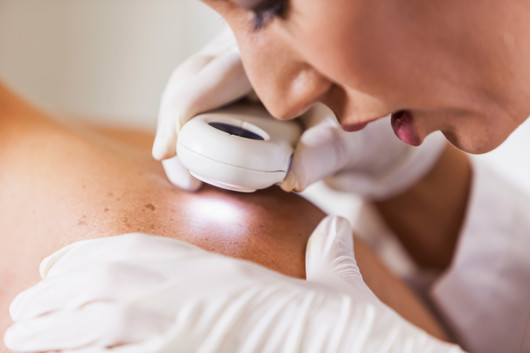Can Mohs Surgery Get Rid of Skin Cancer?
Mohs surgery is an extremely accurate surgical procedure for treating skin cancer. Thin sheets of malignant tumors located in the affected skin are eliminated and inspected, until just skin tissue free from cancer remains.
The primary objective of this surgical procedure is to get rid of as much skin cancer as conceivable while causing as little harm to neighboring healthy tissue.
Mohs surgery is an advancement over local extraction that entails withdrawing noticeable cancer as well as a tiny area of surrounding healthy tissue at the same time.
This type of surgery permits surgeons to ensure that cancerous cells are cleared during the procedure. This raises the chances of curing cancer and decreases the necessity for subsequent treatments or surgery.
Why Is Mohs Surgery Performed?

Mohs surgery is useful in treating basal cell carcinoma, melanoma, and squamous cell carcinoma. It is also used in treating less typical skin cancers.
This surgical procedure is particularly beneficial for skin cancers which:
- Are hostile or huge
- Have difficult-to-define borders
- Have a greater chance of relapse
Are found in regions where healthy tissue can be preserved, including around the nose, mouth, and ears
Are There any Risks Associated With Mohs Surgery?
Mohs surgery, like any other surgical procedure, raises the chances of:
- Infection at the treatment site
- Discomfort at the site of incision
- Excessive bleeding or hemorrhaging
Additional problems that may occur as an outcome of Mohs surgery are rare but can include:
- Keloid
- Short-term or long-term weakness, due to a big tumor or damaged nerve
- Sharp pain
- Itching
How Should You Prepare for the Procedure?
Choosing a Doctor for Mohs Surgery
Mohs surgery is a complex procedure. Therefore, it is important that highly qualified dermatologists perform the surgical technique. This is because they have acquired extensive knowledge about the procedure as part of their medical training.
Some surgeons have even received advanced training in order to better understand the procedure and become more competent in Mohs surgery. Inquire with your dermatologist about his or her credentials and experience conducting Mohs surgery.
Getting Ready For Surgery
Your surgeon may advise you on how to start preparing for surgery. It is possible that you will be asked to:
- Provide the names of all current medications and to discontinue certain ones. Inform your physician about any prescription drugs or vitamins you’re currently consuming. It is important that you share this information because they can possibly cause excessive bleeding. So, be sure your doctor is aware of what you are taking. Continue to take your medications, unless your surgeon advises you not to.
- Anticipate some downtime after your surgery. You should bring a crossword puzzle, book, or other activities because it is possible that you may be at the surgery center all day..
- Put on comfortable clothing on surgery day. Make sure you wear layers of clothing so that you can take off clothing, if needed. The temperature of the room can be either too cool or warm.
- Open your calendar for the entire day. It is impossible to estimate the length of the procedure. The surgery typically only lasts for no more than four hours for most patients. However, your surgeon may recommend you to arrange as if the surgical procedure will take the whole day. So, there is a very tiny possibility it will happen.
Results of Mohs Surgery
The benefits of this surgery is that you will get immediate results. The procedure is completed once all of the cancer is removed. A follow-up appointment with your physician may be necessary, to see if you are progressing, and ensure that your surgical site is healing adequately.

Although Mohs surgery can completely get rid of skin cancer, there is a slight chance of the redevelopment of cancer.
The post Can Mohs Surgery Get Rid of Skin Cancer? appeared first on Top.me.
